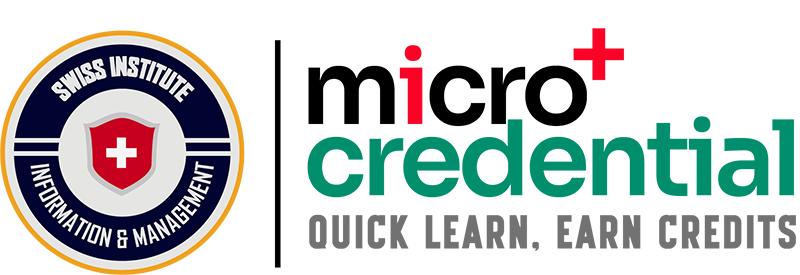Master Award in
Strategic Human Resource Management
Master Award could transfer 20 credits and full tuition fees to Master’s programs by SIMI Swiss.

Master Award in Strategic Human Resource Management
The aim of this award is to develop learners’ understanding of how effective strategic management of human resources supports the achievement of organisational objectives in different contexts. The learner will also learn the process of analysing external and internal factors that affects an organisation and how the contextual factors are used to develop an effective HR strategy. Consideration is given to the contribution of strategic human resource management to competitive advantage and organisational growth.
Could transfer 20 credits and full tuition fee to the Master of Arts in Human Resource Management and Talent Development (MAHRM) of SIMI Swiss.
Learning Outcomes:
1. Understand the role of strategic management of human resources.
-
1.1 Critically examine the nature and importance of strategic human resource management in organisations.
-
1.2 Assess the role and purpose of strategic human resource management activities in an organisation.
-
1.3 Evaluate how strategic human resource management is related to other functional areas.
2. Understand human resource planning in an organisation.
-
2.1 Analyse the business factors that should be considered in human resource planning.
-
2.2 Determine human resource requirements in different organisational contexts.
-
2.3 Develop a human resource plan for an organisation.
3. Understand how contemporary issues in external business environment impact organisations and the management of Human Resources.
-
3.1 Apply the tools for analysing the organisational environment.
-
3.2 Critically evaluate how contemporary issues in external business environment impact organisations and the management of Human Resources.
-
3.3 Critically evaluate legal and regulatory frameworks that impact on Human Resource strategy.
4. Be able to plan effective human resource strategies.
-
4.1 Analyse the impact of organisational strategy, structure and culture on HR strategy and the management of human resources.
-
4.2 Plan an effective HR strategy.
-
4.3 Critically monitor the effectiveness of human resources management.
Topics:
Introduction to HRM and Strategic Integration
Course Coverage:
- Definition and features of HRM approach.
- HRM models: D. Guest, M. Patterson, Best Practice Model, Contingency Model, Harvard Framework.
- Comparison of Personnel Management and HRM.
- Activities of HRM: selection, recruitment, retention, skill development, up-skilling, re-skilling, and succession planning.
HRM Strategy and Organisational Strategy
Course Coverage:
- HRM strategy benefits for organisations and its interrelationship with organisational strategy.
- Organisational performance and HRM strategy; organisational strategy’s influence on HRM strategy.
- Value creation and Human Capital Management.
- HRM strategy’s business focus and characteristics of effective HRM.
Evaluation of Strategic HRM
Course Coverage:
- Evaluation of HRM contributions: characteristics, importance, techniques.
- Changing patterns of HRM due to globalisation and IT advancements.
HRM Planning and Workforce Analysis
Course Coverage:
- Personnel prerequisites: experiences, skills, qualifications, and workforce matching to organisational needs.
- Factors influencing HRM: government policies, education, employment trends, training, and labour market competition.
- Human Resource Planning: features, requirements, and planning lengths (short, medium, long-term).
Organisational and Environmental Analysis
Course Coverage:
- Models for organisational and environmental analysis: SWOT, PEST, McKinsey 7S, Natural System Model, Cognitive Model, Meta Models.
- HR Metrics, employee surveys, audits, and workforce analytics.
Workforce Trends and HR Challenges
Course Coverage:
- Demographic trends and multi-generational, diverse workforce challenges.
- Environmental (green) impacts, virtual workforce, career development, and organisational change.
- Employee benefits, remuneration, global mobility, and work-life balance issues.
Legal and Ethical Considerations in HRM
Course Coverage:
- Legislative frameworks: Employment Act (2008), Data Protection Act (1998), Equality Act (2010), Health and Safety Act (1974).
- Ethics in HRM: discrimination, harassment, racism, nepotism, favouritism, and employee satisfaction.
Culture and HRM
Course Coverage:
- Culture-led theoretical models: Schein, Hofstede, Handy.
- Interrelationship between HRM activities and organisational culture.
HR Strategies and Performance Monitoring
Course Coverage:
- Effective HR strategies using SMART objectives (specific, measurable, achievable, realistic, time-based).
- Importance of monitoring HRM effectiveness: policies, strategies, and operations.
- Evaluation of HRM performance indicators: quantitative (productivity, retention, cost-saving) and qualitative (stakeholder perspectives, employee surveys, benchmarking).
Indicative Reading list
- Adair, J. and Allen, M. (2003). The Concise Time Management and Personal Development. London: Thorogood.
- Megginson, D. (2007). Continuing Professional Development. London: Chartered Institute of Personnel & Development.
- Truss, C., Mankin, D. and Kelliher, C., (2012). Strategic Human Resource Management. Oxford: University Press.
Entry requirements
To enroll The Master Award, the learner must possess:
- Graduated with a Bachelor’s degree from an accredited university or achieved a Level 6 Diploma according to the European Qualifications
- For a degree from non-global accredited universities; The learner should have followed Accreditation of Prior Experiential Learning for Qualifications (APELQ) policy of SIMI and/or University Partners.
- Learners must be over 21 years old.
The SIMI Swiss reserves the highest decision-making power for admission whether to accept or not accept after a specific review of each candidate’s profile to ensure that they can comprehend and gain benefits when participating. For the fake university or diploma mills, University Partners shall not be accepted.
English requirements
If a learner is not from a predominantly English-speaking country, proof of English language proficiency must be provided.
- Common European Framework of Reference (CEFR) level B2 or equivalent
- Or A minimum TOEFL score of 101 or IELTS 6.5; Reading and Writing must be at 6.5 or equivalent
After graduating with Master Award, students receive all certified documents from the SIMI Swiss.
Certified Documents:
- e-Certificate from the Swiss Information and Management Institute (SIMI Swiss).
- Hard copy certificate from the Swiss Information and Management Institute (SIMI Swiss) – Optional.
- Accreditation of Prior Experiential Learning for Qualifications (APEL.Q) certified from University Partners for credit and tuition fee transfer.
Because the program is accredited and recognized, students can easily use certified in the working environment and have many opportunities for career advancement. In addition, in case if you want to study for a SIMI degree or university partner degree, students can convert all credits and the full paid tuition fee when participating in the program University Partners.
The SIMI Swiss’ Master Award means:
SIMI Swiss Mater Award is the award at the master’s level and is equivalent to:
- Level 7 certificate of Regulated Qualification Framework (RQF) of UK
- Level 10 certificate of Scottish Credit and Qualifications Framework (SCQF)
- Level 7 certificate of Credit and Qualifications Framework (CQFW)
- Level 7 certificate of European Qualifications Framework (EQF)
- Level 9 certificates of the Australian Qualifications Framework (AQF)
- Level 7 certificate of ASEAN Qualifications Reference Framework (AQRF)
- Level 9 certificate of the African Continental Qualifications Framework (ACQF)
Students can convert all credits and the full tuition fee when participating in the SIMI Swiss and/or University Partners academic programs if they want to study for an academic degree.
Credits transfer:
Learners can accumulate 20 credits from the Master Award program when participating in the Master of Arts in Human Resources Management and Talent Development (MAHRM). Please see the credit transfer policy HERE
Tuition fee transfer:
When participating in the MAHRM program, students who have graduated 1 Master Award will receive a discount of full tuition fee which you paid. Please see the tuition fee transfer HERE
The SIMI Swiss micro-credential program allows for the transfer of credits and tuition fees into full degree programs from SIMI Swiss and/or its university partners. SIMI Swiss reserves the right to limit admissions once the number of students exceeds the quotas.
Apply Policy:
- To participate in the SIMI Swiss micro-credential program, students need to meet the entry criteria corresponding to each level. Please see the “Entry” tab for more details.
- SIMI Swiss will not accept applicants if their entry qualifications are from diploma mill universities or schools/universities that are not accredited.
- For Master Award programs, if an entry bachelor is unavailable, students must demonstrate a minimum of 5 years of work experience in the relevant field. Please note that a bachelor’s degree is required for the Master’s program at SIMI Swiss and University Partners so that you could study Master Award but could not move to the Master’s program of SIMI and University Partners.
- English is not a mandatory entry requirement for short course programs, but candidates need to ensure that English is used in reading documents, listening to lectures, and doing assignments. Candidates should note that English is a mandatory requirement when switching to an academic program at SIMI Swiss and University Partners.
Apply Process:
- Choose the program that suits your requirements. Note that applicants without a university degree will not be able to participate in the program at Master’s level, and applicants without a Master’s degree will not be able to participate in the program at the Doctoral level.
- Email your application to support@simiswiss.ch with all the required documents. You could download the application form here.
- Our admission department will contact you and guide you through further processes if the registration documents need to be supplemented.
- SIMI Swiss will issue the Letter of Acceptant (LOA). You will proceed to the next steps according to the instructions and pay tuition fee.
- SIMI Swiss will issue a student confirmation letter, login account to the e-learning system and related documents.
- You have become an official SIMI Swiss student and enjoy your study journey.
The SIMI Swiss micro-credential program is fully online, allowing you to study anytime, anywhere. You have the option to attend live classes with SIMI Swiss. The final exam will be uploaded to the system and evaluated by the academic panel of SIMI Swiss. Students must submit assignments on time; failure to do so will result in the student being considered to have discontinued the program.
Pricing Plans
Take advantage of one of our non-profit professional certified programs with favorable terms for your personal growing carreers.
- Live Class (Option)
- Full online videos
- e-Books
- Self study contents
- Online tutor videos
- Assignment guide
- e-Certificate
- Hard copy certificate
- Accreditation of Prior Experiential Learning for Qualifications (APELQ) certified from University Partners for credit and tuition fee transfer
- Accreditation & Recognition certified from University Partners
- Deliver hard copy certificate and all certified documents to your home
- Transfer full credits & tuition fees to equivalent academic programs
- Get more support tuition fees and scholarships when become University Partners' international students
- (*) In the event that you receive a scholarship or discount, the fee you should transfer is the amount you actually paid
SHORT COURSES NETWORK
Contact us
If you interested this course, please feel free to contact with us! Please note that this program is a not for profit and learning with full online model.
